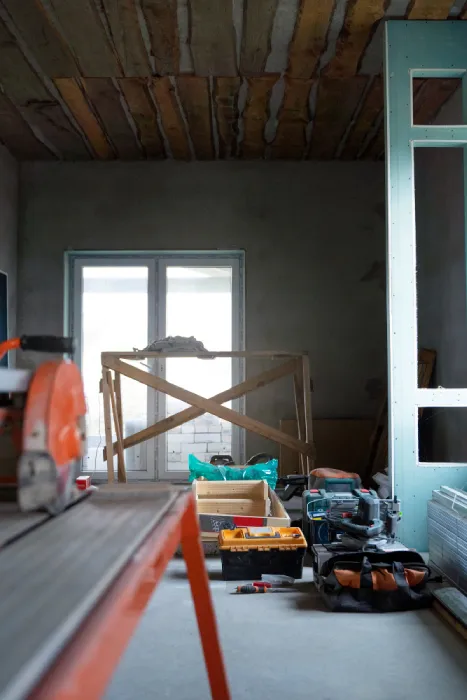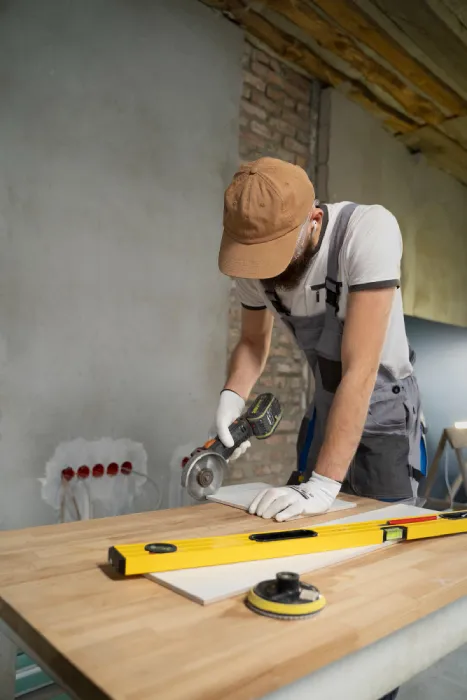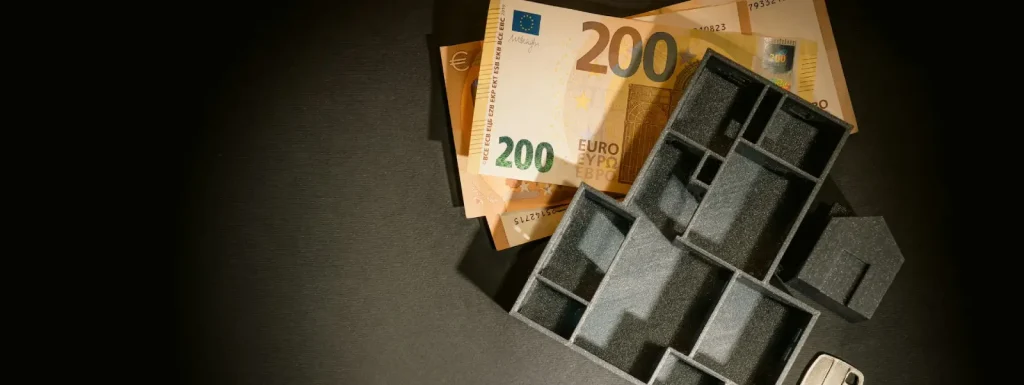When considering the development or improvement of property in Crete, homeowners are faced with a significant decision: Should they renovate an existing building or embark on new construction? Each option has its own set of advantages and challenges, and this guide will provide detailed insights into the decision-making process.
Whether you’re drawn to Crete’s traditional architecture or modern luxury, understanding the nuances of renovation versus new construction is essential. In this guide, we’ll walk through both options, offering real-life examples, key factors to consider, and professional advice tailored for homeowners in Crete.
Overview: Renovation or New Construction in Crete
- Renovation involves improving or restoring an existing structure, often with the goal of preserving its historical or architectural significance.
- New Construction refers to building a home from scratch, giving you more freedom in design and layout.
| Criteria | Renovation | New Construction |
|---|---|---|
| Cost | €500-€1,500 per square meter | €1,500-€3,000 per square meter |
| Timeline | 3 to 12 months, depending on complexity | 9 to 18 months, from planning to completion |
| Design Flexibility | Limited by the existing structure | Full design flexibility |
| Energy Efficiency | May require retrofitting (higher long-term costs) | Built with modern energy-saving technology upfront |
Renovation: Preserving Crete’s Rich Heritage
Why Choose Renovation?
Crete is filled with homes that reflect its rich history and culture. Traditional Cretan houses, often made of stone and wood, offer charm and character that modern homes cannot easily replicate. Renovating these structures allows you to preserve history while adding modern comforts, making it a popular choice for homeowners who value authenticity and sustainability.
Renovating is also an excellent option if you’re looking to maintain the original architecture or are located in areas with strict building regulations that favor preservation. In some cases, renovation can be more cost-effective than new construction, but it comes with potential challenges like unexpected structural issues.
Real-Life Example: Renovating a Traditional Stone House in Chania
One homeowner in Chania took on the task of renovating a 150-year-old stone house. While the stone exterior and wooden beams were retained, the interior was completely modernized to meet current living standards.
- Budget: The initial estimate was €100,000, but the final cost increased to €125,000 due to unexpected foundation repairs.
- Timeline: The renovation took nine months, partly due to delays in sourcing period-appropriate materials.
- Outcome: The home’s value increased by 35%, and the owner benefited from tax incentives offered for restoring historical properties.
| Before Renovation | After Renovation |
|---|---|
| Cracked stone walls | Restored with modern insulation |
| Leaky roof and old wooden beams | New roof and restored beams treated for longevity |
| Basic electrical and plumbing | Modernized systems compliant with EU standards |
Advantages of Renovation
- Cost-Effective: Renovation can often be more affordable than building from scratch, particularly when working with an existing structure.
- Historical and Cultural Value: Restoring a traditional Cretan home maintains the island’s architectural heritage.
- Environmental Sustainability: Renovating an existing structure can be more eco-friendly than new construction, as it reduces the need for new materials.
New Construction: Building for the Future
Why Choose New Construction?
New construction offers complete flexibility, allowing homeowners to design a property that meets modern needs and aesthetic preferences. This option is ideal for those looking to build a home that incorporates the latest energy-efficient technologies, smart home systems, and modern layouts that promote open living spaces.
In Crete, new construction is particularly popular in coastal areas where building a new, modern villa is more appealing than restoring an older, potentially less functional property. Building from the ground up allows for better control over materials, design, and long-term efficiency.
If you’re planning to build or renovate a property in Crete, understanding the costs involved is a crucial first step. Whether you’re dreaming of a traditional stone house nestled in the Cretan countryside or a modern villa with breathtaking sea views, it’s essential to grasp how local factors affect construction expenses.
For a comprehensive look at these influences, including expert insights and practical tips, be sure to check out the article, “Understanding Building Costs in Crete: Insights from a Construction Consultant.“ This guide delves deep into the key elements that shape your construction budget, offering advice from seasoned consultants who know the local market inside out.
Real-Life Example: A Modern Villa in Rethymno
A family relocating to Crete decided to build a modern villa on a plot of land in Rethymno. The design incorporated clean, minimalist lines with large glass windows to take advantage of the sea views. Energy efficiency was a key consideration, so the home was built with solar panels, water recycling systems, and state-of-the-art insulation.
- Budget: The project cost €500,000, which included high-end finishes and energy-efficient systems.
- Timeline: The entire process, from purchasing the land to moving in, took 18 months.
- Outcome: The villa’s energy-efficient design reduced the family’s utility costs by 40%, making it a long-term investment both in financial and environmental terms.
| Key Features | Modern Villa in Rethymno |
|---|---|
| Design | Contemporary with open-plan layout |
| Energy Efficiency | Solar panels and rainwater harvesting systems |
| Technology | Smart home automation for lighting and security |
Advantages of New Construction
- Design Flexibility: You have complete control over every aspect of the design, from the floor plan to the choice of materials.
- Energy Efficiency: New construction can incorporate the latest energy-saving technologies, which can significantly reduce utility costs over time.
- Long-Term Investment: Modern homes often have higher resale values, especially if they are built with sustainability and future-proofing in mind.

Remodeling and Renovation Services in Crete.
Whether you’re looking to increase the value of your residential or commercial property or proceeding to a necessary structural repair, skeleton reinforcement or total reconstruction of the building ARENCOS can assist you.
Factors to Consider When Deciding Between Renovation or New Construction in Crete
When deciding between renovation or new construction in Crete, Greece, there are several key factors to consider. Both options have their benefits and challenges, so the best choice depends on your priorities, budget, and the specific property you are working with.
Budget
- Renovation: Typically, renovation costs range from €500 to €1,500 per square meter, but hidden costs (like structural repairs) can increase this.
- New Construction: The cost of building from scratch in Crete can range from €1,500 to €3,000 per square meter, depending on design complexity and materials.
Timeline
- Renovation: Depending on the condition of the property, a renovation can take anywhere from 3 to 12 months. Major structural work or dealing with historical properties can extend this timeline.
- New Construction: Building a new home usually takes longer, with timelines ranging from 9 to 18 months. This includes planning, obtaining permits, and completing construction.
Property Condition
- Renovation: If the existing structure is sound, renovation might be more cost-effective and faster. However, properties with serious foundation issues or outdated systems may require extensive (and expensive) work.
- New Construction: If the property is in poor condition, it may make more sense to start fresh with new construction, ensuring that the home is built to modern standards.
Local Regulations
Crete has strict building regulations, particularly in areas with historical or architectural significance. Renovations on older buildings often face restrictions that require maintaining the property’s original character, while new construction projects must meet modern building codes. Consulting with local authorities or a professional architect is essential before making a decision.
Example: Hybrid Approach in Heraklion
A couple in Heraklion opted for a hybrid approach, preserving the original stone façade of their home while completely reconstructing the interior. This allowed them to keep the charm of the traditional Cretan house while enjoying the benefits of a modern, energy-efficient living space.
- Budget: This hybrid project cost €250,000, striking a balance between renovation and new construction costs.
- Timeline: The project took 14 months due to the complexity of integrating new systems into the old structure.
- Outcome: The home’s value increased by 40%, and the owners were able to preserve the historic charm while enjoying modern amenities.
| Hybrid Project | Outcome |
|---|---|
| Historical Façade | Stone exterior preserved |
| New Interior Construction | Modernized with energy-efficient materials |
| Cost and Time | Balanced between renovation and new build |


Making the Right Choice for Your Home in Crete
Deciding between renovation and new construction depends on your budget, timeline, and vision for your property. Renovation is ideal for preserving Crete’s rich architectural heritage, while new construction offers a blank slate for modern innovation and design. In some cases, a hybrid approach can offer the best of both worlds.
Before making your final decision, consult with local architects, contractors, and real estate professionals who are familiar with Crete’s unique building landscape. By carefully weighing your options and planning accordingly, you can create a home that fits both your lifestyle and the beautiful surroundings of Crete.
| Criteria | Renovation | New Construction |
|---|---|---|
| Initial Costs | Lower but may have hidden costs | Higher but more predictable |
| Flexibility | Limited by existing structure | Complete design freedom |
| Timeline | Can vary based on property’s condition | Longer but more controlled |
| Energy Efficiency | May require retrofitting | Built with modern standards |
| Cultural Value | Preserves Crete’s architectural heritage | May lack historical significance |

